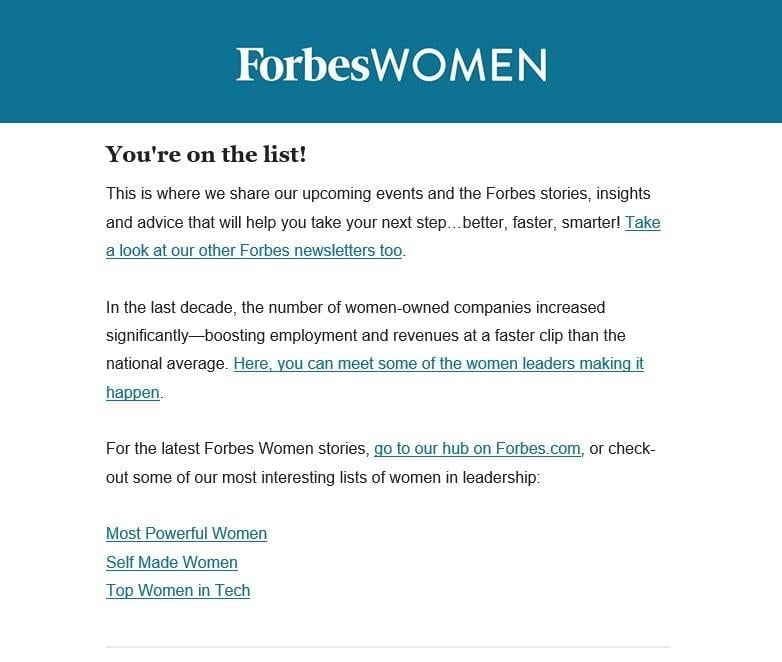New News On Selecting An Email List Website
Wiki Article
What Factors Should I Consider When Buying What Should I Consider When Purchasing A Hematologist Email List?
Consider these key considerations when purchasing a physician's email list. It is important to ensure that the list you purchase is reliable, accurate. compliant legally, and pertinent to your marketing goals. Here are some crucial considerations. Data quality and accuracy
Source of Data: Confirm that the email list provider has reliable sources such as medical databases, professional directories or verified opt-ins from hematologists. The quality of a list can be judged by how precisely contacts were gathered.
Verification and updates: Find out the method used by the service provider to verify data. Emails should be checked to get rid of invalid or inactive addresses. Regular updates are essential to ensure the list remains up-to-date, since healthcare professionals could change positions or institutions.
Segmentation by specialization: The list should be specific to hematologists. If possible, segment the list further, for example by location, subspecialty, years of practice, or an affiliation with hospitals. The well-organized list can help you focus your outreach more effectively.
2. Conformity to Legal Regulations
Data Privacy Laws – Ensure the list complies with relevant laws and regulations, such as California Consumer Privacy Acts within the U.S.A. or General Data Protection Regulations in Europe. It means that the email addresses should be collected only by consent.
CANSPAM Act: in the U.S.a, check that your email address is in compliance with the CANSPAM Act. It governs electronic commercial communications. Your email messages could be deemed spam if you do not adhere to.
Opt in Consent: Only add those doctors on the list who have consented in writing to receive emails from other third parties. Sending unsolicited email to people who have not given their consent could result in an adverse effect on engagement, and even cause legal problems.
3. Provider Reputation
Check the reputation of the company. Reviews, testimonials, and case studies can help you figure out whether the firm is well-known. A well-established provider with solid history will be more likely to deliver accurate, high-quality data.
Transparency. Select a provider with transparency regarding where and how data was obtained. The providers who are unclear or not clear about the methods they use to collect data should be avoided.
Customer Support: It's essential to choose a company that offers high-quality customer service. Support is essential if you encounter issues with your technical setup or need to alter your list, or have compliance questions.
4. Cost and return on Investment (ROI).
Pricing Model: Consider the pricing model offered--whether it's pay-per-contact or flat fee or subscription-based. Pricing should be based on the ROI potential while also balancing the quality and the quantity of your list with the budget for your marketing.
Refund or replacement policy A reputable provider will provide refunds or replacements to customers with incorrect or outdated email addresses. Make sure you understand any conditions or terms prior to you purchase.
Value for money: Compare the features of the list (such as segmentation and accuracy of the data provided by the service provider) with the price. It might not be worthwhile to purchase the cheapest listing in the event that the quality of data is poor.
5. Data ownership and usage
Single Use in contrast to. Understanding the rules of use is essential. Certain providers allow only the use of the list for a specific campaign while others offer unlimited usage rights.
Exclusive vs. Lists shared: Determine if the list belongs to your business or is distributed to other buyers. Exclusive lists have a higher level of engagement as the contacts will be more likely to not receive numerous marketing emails.
6. Data Integration and Format
Integrity with CRM and Email Tools - Ensure the email list can be easily integrated with your CRM platform or email marketing tool. The list should be accessible in common formats such as CSV or Excel for smooth integration.
Easy of Use: Evaluate how easy it is for you to manage and filter your list. Lists with a lot of data that are difficult to manage or segment can decrease the effectiveness and effectiveness of your marketing campaign.
7. Ethical Questions
Relevance to Hematologists Consider ensuring that the email you send out is appropriate for doctors. If you send them content that doesn't align with their expertise could result in poor engagement and adversely impact your brand reputation.
Avoid spam practices: Do not bombard recipients with a lot of emails. Sending too many emails too often could result in complaints about spam, which could damage the reputation of the emailer.
The final sentence of the article is:
An email list of hematologists is an excellent tool for marketing targeted to specific audiences, however you need to be careful when buying one. Take into consideration the accuracy of the data and reputation of the company, and the compliance with privacy laws to ensure that you receive an accurate list. Segmentation, legal compliance and ethical marketing are among the most essential aspects to be considered in order to maximize your return on investment. Check out the best hematologists email list for site recommendations.

What Aspects Should I Be Thinking About When Purchasing An Urgentcare Email List?
If you're looking to purchase an email urgent care list, you must consider a variety of aspects. These include whether the list will be reliable, effective and compliant legally and relevant to your goal for marketing. Here are the main considerations:1. Data Quality and Accuracy
Source of Data: Ensure that the information is sourced from reliable sources, like medical associations, databases for healthcare or professional directories. Avoid lists created using scraping or other unreliable methods as they may contain incorrect or out of date information.
Verification: Make sure that the list of email addresses was regularly updated. A reliable service provider will employ a stringent procedure of verification to get rid of invalid or outdated email addresses. This process ensures high delivery rates and reduces the bounce rate.
Segmentation and targeted The list should include choices for segmentation by location, for example (city, province or region), the size of the facility (e.g. pediatrics, diagnostics) or the roles of decision makers (e.g. medical directors, managers). A targeted list increases the effectiveness of your outreach, and also increases the rate of engagement.
2. Compliance with Legal Regulations
Data Privacy Laws: Ensure that you are in compliance with national and local laws, including the California Consumer Privacy Act, which is applicable to the U.S.A. As well as the relevant European laws on data protection. That means that emails must be processed and collected legally with the permission of all the parties involved.
Conforming to the CAN-SPAM Act: Email marketing campaigns within the U.S. are required to conform to the CANSPAM Act. You must include your email address along with a clear "opt-out" method. Infractions could lead to penalties or damage to your brand image.
Opt-in Consent: Make sure that all email addresses in the list have been obtained with consent. This means that the recipients have explicitly consented to receiving marketing communications. This reduces the likelihood of receiving spam complaints or legal issues.
3. Provider Reputation
Establish Provider: Choose one that has an established track record of providing compliant, high-quality email lists. To determine the credibility of a service and customers' satisfaction, look through reviews, testimonials, as well as case studies.
Transparency. The service provider must provide full transparency regarding the source of their data and frequency of updates. If the company isn't able to provide an exact explanation of how they gather information, this could indicate that their data is low quality.
Customer support: It's vital to have a reliable customer service department if you are looking for help with any technical issues or list customization. A company that is responsive can to help you get the most value from your list.
4. Costs and Return on Investement (ROI).
Pricing models Email list providers have a variety of pricing structures like flat fee or pay-per contact. Take into consideration the pricing model in relation to your marketing budget and the expected ROI. Compare the cost and quality of a list to the relevant data.
Refund or replacement policy Most reliable suppliers offer a replacement or refund policy when a significant portion of email addresses is invalid or is not deliverable. Before buying, make sure you understand the terms of any policy.
Cost-effective: Do not choose the most affordable option. Instead, choose lists that are accurate and include a thorough segmentation. By investing your money into a quality list will boost the rate of engagement and offer you a higher ROI on your investment.
5. Data Usage and Ownership
Single-Use or Multi-Use? Clarify whether you can utilize this list for one campaign, or multiple times. Lists that can be used multiple times offer greater value, especially when they are used to conduct ongoing outreach campaigns.
Exclusive vs. Lists shared: Choose if the list belongs exclusively to your business or shared with other buyers. The shared list can cause the recipients becoming tired, as they may receive emails from several organizations.
6. Data Integration and Format
CRM Compatibility. Ensure your email lists are delivered in formats that work with the platform you're using for email marketing or customer relationship management, for example CSV or Excel. This allows for seamless integration and lets you begin your campaigns in a short time.
Ease of Use: The email list must be simple to manage and segment according to your specific criteria. A well-organized list can increase the efficiency of targeting and personalization.
7. Ethical aspects
Relevance and worth of content: Urgent caregivers are busy professionals, which means the information that you distribute must be relevant and useful. Adjust your message to meet their needs. For example when you're promoting medical equipment, supplies or technologies that align with operations in urgent care, tailor your messaging. Sending inappropriate content can hurt your brand's image and decrease engagement.
Be cautious about the frequency with which you send emails. Sending too many emails or unwelcome messages can lead to spam complaints and lower the reputation of your sender.
Conclusion
Pay attention to the data's quality as well as legal compliance and reputation when purchasing an urgent care email list. The lists should be regularly segmented and must adhere to data privacy laws. Sending relevant content to an appropriately targeted and well-organized list will boost engagement and help you achieve a positive return on investment. See the expert urgent care email list for website info.
